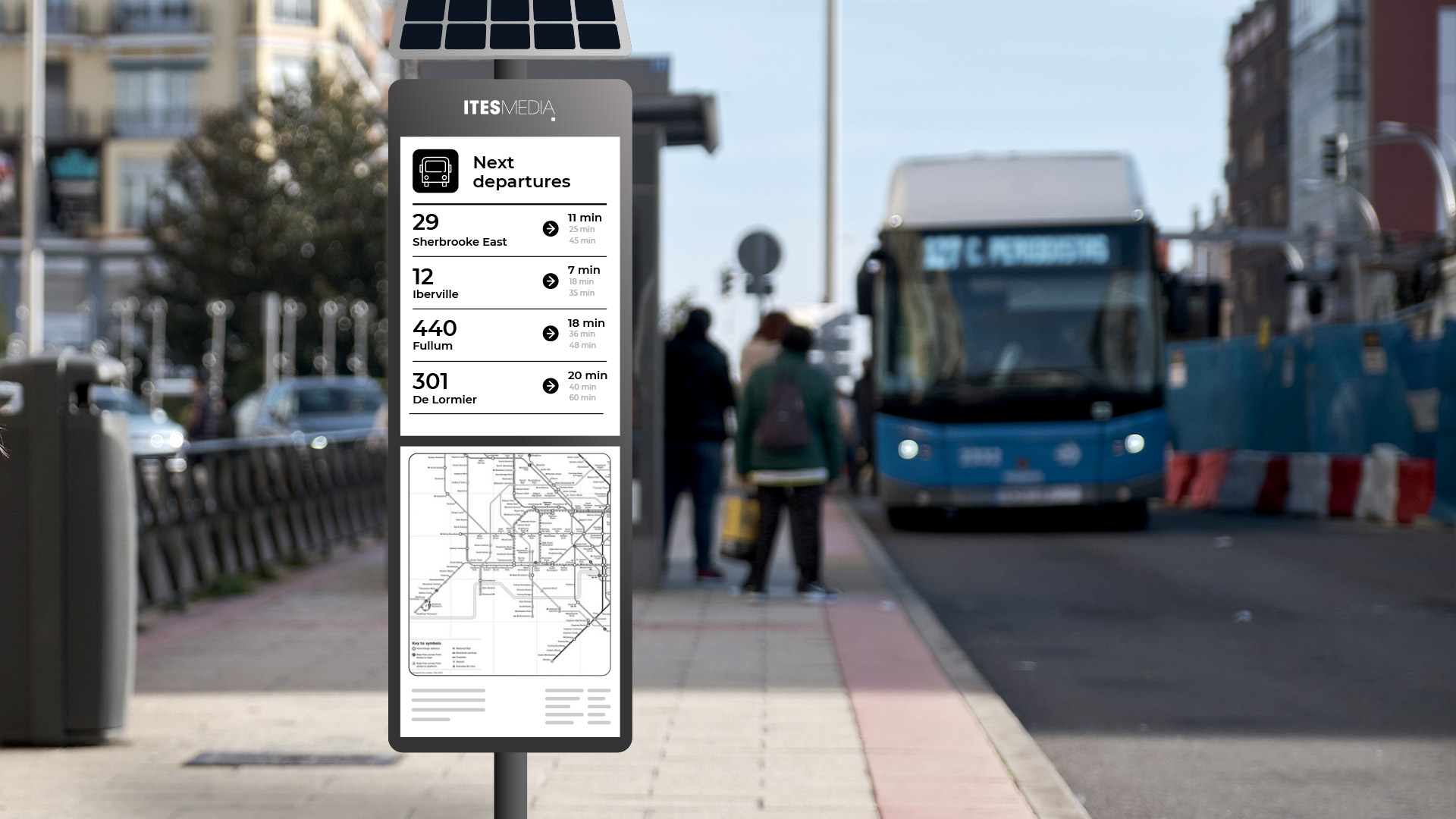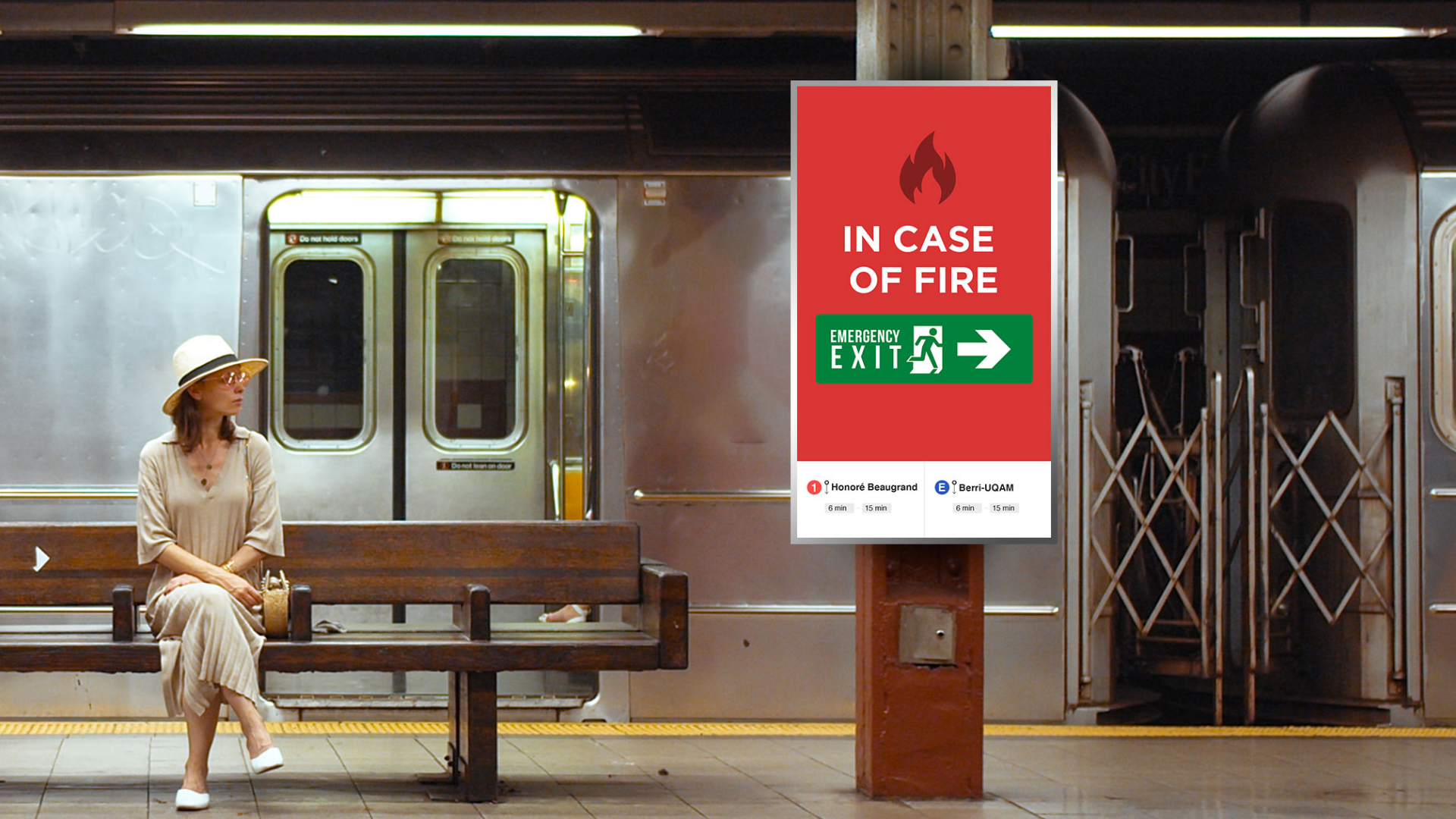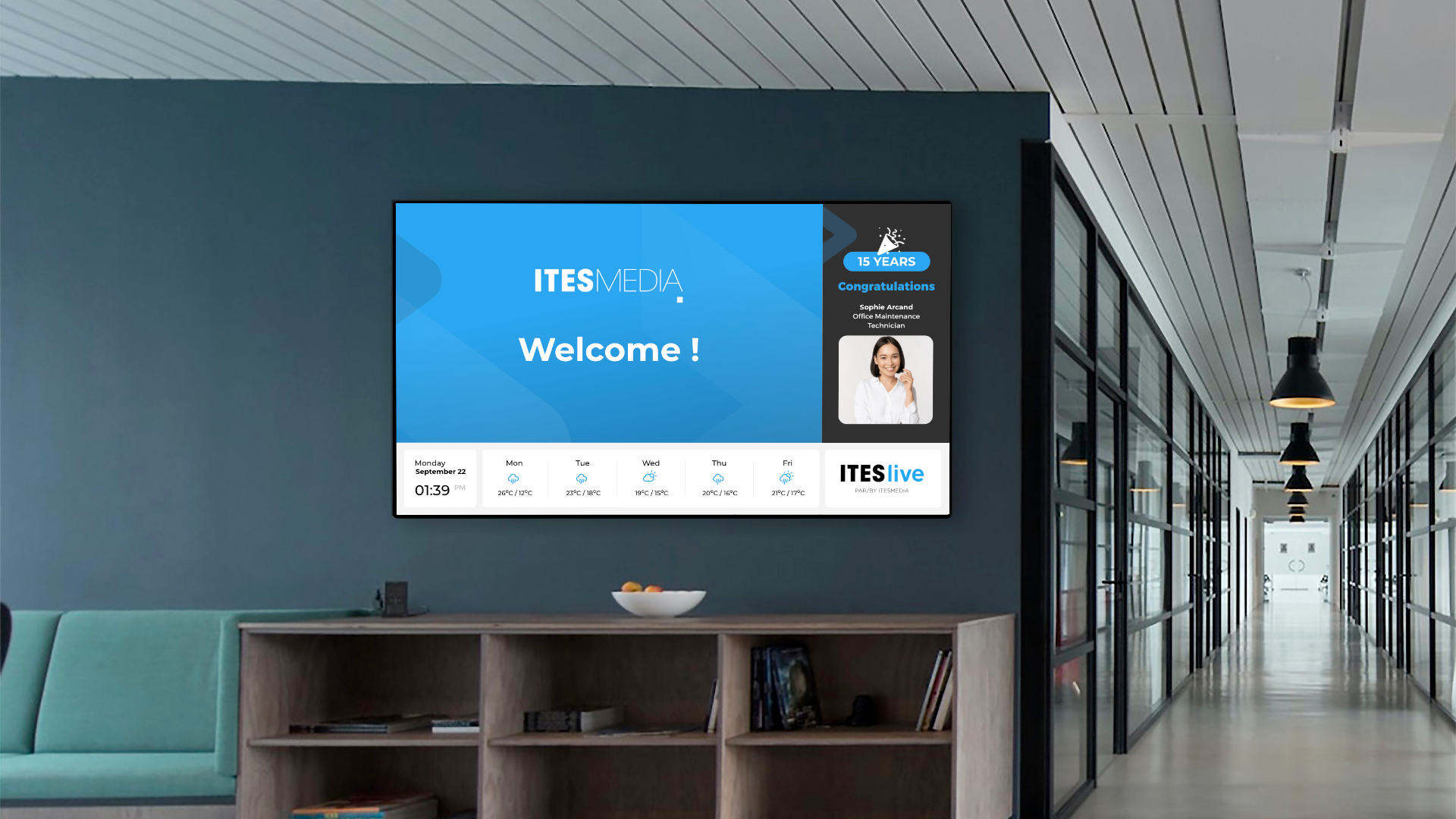Public transportation system operators often use passenger information systems to display schedules of upcoming buses, trains or metro departures (among others) in real time. One type of display is becoming more and more popular with transport companies: ePaper displays, also known as “e-Ink”.
ePaper displays versus LED/LCD screens
ePaper displays are easily recognizable because their brightness level is softer while remaining easily readable, and display content in black and white. This makes them very similar to eReaders, and they look almost exactly like paper posters – hence their name. LED and LCD displays can share images in color, and their brightness is more intense.
Benefits of ePaper displays
Reduced costs and energy consumption
The main reason ePaper displays have become so popular is their great energy-saving capacity. These wireless displays are battery-operated and solar-powered, which reduces their environmental footprint as well as their energy costs. .
Designed for indoor and outdoor use
These ePaper displays can be installed indoors, such as in train or metro stations, or outside, for example at bus stops, as they are weather resistant. e-Ink self-powered displays can also be moved easily from one location to another since they don’t need to be physically connected to anything (such as a power cord); they are battery-powered and communicate through wireless/5G networks.
Easier readability
ePaper displays provide great brightness levels and are easier on the eyes, which makes them more comfortable to read. They are perfectly readable both during the day and at night, and even when facing direct sunlight. Since ePaper displays are very similar to real paper, their readability stays optimal during the brightest days and the darkest nights.
ePaper displays are a great solution that complement other screen types such as LED and LCD displays in public transportation signage projects. Furthermore, ePaper displays are compatible with the ITESMEDIA passenger information system.





.jpg)
